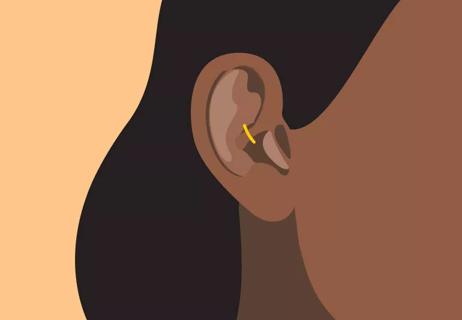These meds may help you kick-start your weight-loss plan

Experience is generally a good thing, but not when it comes to dieting. Knowing the ins-and-outs of every diet plan probably means you’ve tried them all … and maybe ended up right back where you started. An “E-for-effort” doesn’t count, unfortunately, when you’re trying to lose weight to improve your health.
Advertisement
Cleveland Clinic is a non-profit academic medical center. Advertising on our site helps support our mission. We do not endorse non-Cleveland Clinic products or services. Policy
Endocrinologist and obesity specialist Marcio Griebeler, MD, explains how prescription weight loss medications may help you be done with dieting for good.
Video content: This video is available to watch online.
View video online (https://cdnapisec.kaltura.com/p/2207941/sp/220794100/playManifest/entryId/1_3k91qy7r/flavorId/1_5f3sgelj/format/url/protocol/https/a.mp4)
Video playlist content: This video playlist is available to watch online.
View video playlist online (https://cdnapisec.kaltura.com/p/2207941/sp/220794100/playManifest/entryId/1_ji1jd7ue/flavorId/1_5f3sgelj/format/applehttp/protocol/https/a.mp4)
A: Prescription weight-loss medicines can help people kick-start weight loss as a means of improving overall health. They are currently available for people who meet specific criteria:
A: In most people, weight loss medicines work on the brain to curb your appetite. Initially, this can jump-start weight loss. Over time, however, your body adjusts, and the medication may be less effective.
At that point, you may need to increase the dosage to get the same effect. In some states, like Ohio, laws limit how long you can use the medications. In general, weight-loss pills aren’t intended for long-term use.
A: Sorry, but no. A weight-management physician may recommend prescription weight-loss medicines as part of a package that includes:
Advertisement
A: As with any medication, there are risks, most often in the form of side effects. Plus, some of the medicines are controlled substances — while it’s unlikely you’ll become addicted, we monitor you closely so you don’t develop a dependency.
Side effects associated with prescription weight loss pills include:
A: The average weight loss is between 6 and 15% of your body weight within six to twelve months. Losing just 5% of body weight can make a big difference when it comes to conditions like diabetes, cholesterol and high blood pressure. Right now, there are around six medicines on the market, so if one option doesn’t work for someone, we can often try something else.
A: Once you’ve learned the risks and benefits and have decided to pursue medication, we usually recommend a six-month commitment to start. Patients should be seen at least monthly. In Ohio, because of prescription laws, you must have a monthly appointment. You might also see a dietitian and behavior health specialist for added support.
Our goal is to help you adopt habits that will serve you lifelong. When you go off medicines, you may regain the weight. But with healthy lifestyle changes, you’ll have a higher chance of keeping the weight off for good.
Advertisement
Learn more about our editorial process.
Advertisement

Actively choose healthy habits not only when it comes to food and nutrition, but also physical activity and your mental health

Trying fad diets and skipping meals won’t do you any favors

Wearing this undergarment for too long will do more harm than good

Quick weight loss is possible, but it’s not sustainable

You can lose 15% of your body weight, plus lower your heart disease and diabetes risks

A safe and effective surgery that shouldn’t be considered only as a last resort

Focus on physical activity and foods that pack a nutritional punch to help you lose weight

Skip this unproven, unsafe and unregulated weight-loss practice

Type 2 diabetes isn’t inevitable with these dietary changes

Applying a hot or cold compress can help with pain